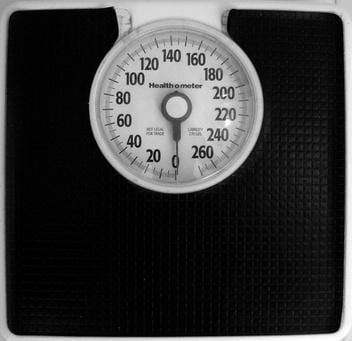Gaining weight throughout your pregnancy is a normal and necessary part of the process. You may gain weight slowly at first only to feel like your body balloons in the third trimester. The increased weight gain is part of your baby’s development, and there are many reasons for it. Understanding how your body and your baby use the weight can help you be more comfortable as your pregnancy shirts start to get tighter.
Time Frame
According to the Pregnancy website, the third trimester of your pregnancy begins at week 28 of the gestational period and concludes with your baby’s delivery. Typically your due date will occur in week 40 of the gestational period, but some women deliver earlier and others, later.
Significance
While it can be uncomfortable to put on weight, healthy weight gain is essential for your baby. In a Texas Department of State Health Services’ report, the state warned registered dietitians about weight gains outside the Institute of Medicine (IOM) recommendations. The IOM guidelines indicate you should gain between 1/2 lb. (if you are obese) and 1 lb. per week (if you are at a normal weight or are underweight) in your third trimester. Failing to gain the appropriate amount of weight doubles your chance of a poor pregnancy outcome, which can include morbidity and infant mortality, according to the report.
Weight Distribution
Based on the IOM recommendations, you will likely gain between 6 and 12 lbs. in your third trimester. According to the Pregnancy website, the baby will average 2.2 lbs. at week 28 and average 7.6 lbs. at week 40. That means your baby will gain an average of five of the pounds you put on in the last trimester. It’s important to remember pregnancy weight gain is not body fat.
The American Pregnancy Association divides your weight gain in the following way: 1.5 lbs. for the placenta; 2 lbs. amniotic fluid; 4 lbs. for increased blood volume; 2 lbs. for the uterus; 2 lbs. for the increase in breast tissue, which can include the development of breast milk; 4 lbs. in increased fluid volume; 7 lbs. for fat, protein and other nutrients; and 7.5 lbs. for the baby. With these averages, your total weight gain would reach 30 lbs. over your pre-pregnancy weight.
Physical Effects
The added weight gain in the third trimester of your pregnancy can lead to the development of new symptoms, many of which can be uncomfortable. Most symptoms correspond to the baby’s weight gain and yours, but changes in your hormones as your body prepares for delivery can also contribute to their development. According to the Mayo Clinic, the new symptoms can include shortness of breath, back pain, hemorrhoids, spider or varicose veins and enlarged breasts.
Expert Insight
In compiling and revising its guidelines, the IMO emphasizes the need for you to work with a health care provider throughout your pregnancy to customize your weight gain to your specific body. According to the IMO, several things, from your pre-pregnancy weight to your race to your height, can affect how much weight you should gain from your pre-pregnancy weight.
Photo Credit
- scale image by jedphoto from Fotolia.com





